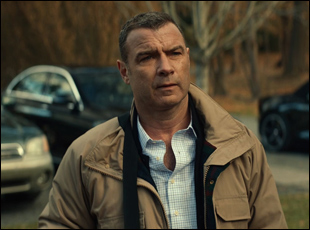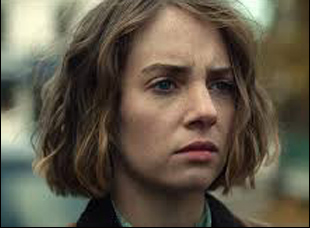If Marc Meyers’ films didn’t feel so modern, you might think he’d fit right in during the early days of the Hollywood studio system, the kind of versatile craftsman that would’ve shuttling from one set to another bringing the best out of all the biggest movie stars on the lot. In the past year, it seems like he’s still managed a way to do just that with a trio of films of the kind that people inevitably say, “They don’t make ‘em like that anymore,” recently wrapping production on the Universal romance “All My Life,” following the 2019 double duty of the Alexandra Daddario horror film “We Summon the Darkness” and the ensemble drama “Human Capital,” which is the first to arrive for public consumption following a well-received premiere last fall at the Toronto Film Festival.
The adaptation of Stephen Amidon’s 2004 novel about a hit-and-run accident that ends in death for a waiter bicycling home after his shift that ripples through the top levels of high society might feel more timely now than when it was written, already inspiring one screen version in Paolo Virzi’s 2013 Italian take that came in the wake of Silvio Berlusconi’s tenure as Prime Minister and becomes particularly chilling in the hands of Meyers and screenwriter Oren Moverman, who consider how people are increasingly seen as nothing more than data points on a spreadsheet in an age of unregulated corporate greed. The market is particularly brutal to Drew (Liev Schreiber), a middle-class real estate agent who sees his daughter Shannon (Maya Hawke) as an in to more hallowed ground when she starts dating the son (Fred Hechiger) of Quint Manning (Peter Sarsgaard), a hedge fund broker that Drew hopes will cut him in on some shares, and while an opportunity arises for Drew to get what he wants, it’s far more than he bargained for when the stocks take a dip, as do the personal fortunes of all involved, including Quint and his wife Carrie (Marisa Tomei) once they’re all connected to the dinner where the waiter was last seen.
Meyers, who knows how to engage even with the most cold-blooded of material, having last made the compelling “My Friend Dahmer,” brings an exacting eye to the proceedings, even as the perspectives in the story shift, employing a fractured structure that takes into account how class and privilege, or lack thereof, has shaped each of the characters’ worldviews, from Carrie, who can buy an old movie palace on a whim, to Ian (Alex Wolff), a friend of Shannon’s who can’t afford to keep a roof over his head or his uncle. Although the current economy ultimately proves to threaten the livelihoods of all on screen, the director and his talented cast are able to let one into their lives in such a way that one can feel a true sense of loss sets in well before someone dies and transforms the dehumanizing nature of chasing money into a taut thriller where it can’t be predicted that people will eventually do the right thing. With “Human Capital” now available on demand, Meyers spoke about the first film of his that he didn’t write himself, his deep appreciation for actors and getting to test out his range on wildly different films of late.
 Was it interesting to come into a project that you didn’t originate?
Was it interesting to come into a project that you didn’t originate?
That was maybe one of the things that I took away from “My Friend Dahmer,” which was an adaptation. Not only was it fun for me to take someone else’s source material and find a way to dramatize it and make it my own, it was a gradual process of realizing I love directing so much that I don’t always have to start from a blank page and build it all the way up because I so enjoy working with actors that to have someone else’s script actually means I’m a little bit closer to making the movie. I’m forever a writer, so I’m always going to have my story input or find my way in through these characters’ journeys, and I’m working on my own stuff too. But the reality is that by the time you’re directing a movie, even if you’ve written it, I might’ve written it a year, year-and-a-half or years prior, so I’m still interpreting the script anyhow and you’re still in the experience of being on set and being in the edit room, still having to do the same drill as a director if it’s your script or somebody else’s. So when I fell in love with “Human Capital,” I locked into it as a journey I wanted to go on and tell that story.
What made you fall in love with this?
I was a fan of the screenwriter [Oren Moverman], so I was just excited to read it. I fell in love with the richness of each of the characters and the way in which there was such a wonderful set of nuances folding into how he told these scenes and how the whole story was structured unconventionally — the structure itself was part of the meaning of the story. The story is about the separation of American class and our loss of community and this story was told in three fractured parts, so the form is showing the separation of lower, upper and middle class concerns and vulnerabilities, which I found exciting as a director to explore a story not in a straight path. I also felt like there would be some wonderful actors that would be really excited to play these roles.
At what point did you start looking for locations? They end up telling so much about the characters.
It was an independent film, so I had just shot another movie in Canada, came home and slept for a couple days and then immediately went into the location van with this new crew to location scout around the New York area and a lot of time was finding that main house. We went to a lot of available mansions of different styles and in different parts of the metropolitan area to get a sampling and then eventually what ended up happening was it wasn’t just that we were looking for a house that was big, but you realized that when you walked into this house designed by Bates Masi Architects that when you live at that level, you can also create a space for you that isn’t just big as much as it’s living really, really well. There’s something peaceful about that home that’s both homey and personal, but also at the same time, everything felt very designed. Every detail of that house had thought in it – that is what’s apparent when you have that kind of wealth. So that house was so unique, we felt we had to base the film there.
And then that determined a lot of things, like finding a nearby banquet hall and other parts of the schedule had to be around that part of Long Island. Finding a middle class house for Liev’s character represented something different with a shorter driveway where you feel like your neighbors might be on the other side of the hedges, but you feel like it’s part of a middle class community and then the third house, which is where Uncle David and Alex Wolff’s character Ian lives, it’s like underneath the flight path of the airport with the cemetery behind it. [There’s always] sirens around the corner and you get a sense that the wealthy can find a place to live in a very serene setting and then the contrast is that someone must live underneath the planes landing at JFK.
 One of things I’ve been most impressed with in your films is how you’re able to bring this cold, clear-eyed perspective to stories that still have a great deal of humanity in them. Is that a difficult balance to achieve?
One of things I’ve been most impressed with in your films is how you’re able to bring this cold, clear-eyed perspective to stories that still have a great deal of humanity in them. Is that a difficult balance to achieve?
As a director, there’s a couple goals. A camera for me is a way to communicate the story through a certain perspective and this movie is so rooted in three different distinct perspectives that knowing what that perspective is at any given moment really helped determine the best way to place the camera to determine who knows what information when, then within that find the humanity that if someone’s doing something that they know they shouldn’t be doing, but they do it anyhow, and they can’t stop themselves. That to me is what we all do. We’re all full of so many self-contradictions and flaws and in it, the humanity is the push and pull between desire to do something. That’s the angel and devil sitting on your shoulders. So it’s finding that inner conflict in every moment while also trying to deal with the conflict between people and other issues are the fun things to deal with at the same time in a scene.
And each of the three leading actors – there’s Liev [Schrieber], there’s Marisa [Tomei] and there’s Maya Hawke and each of them have their own kind of essence, not only as an actor, but as that character and we responded to that as a way to communicate a tone that was in line with who that person was. Marisa’s character is a wealthy character that’s isolated within her own mind and within her own marriage, so we tried to isolate her as much as possible. Liev, I always viewed as a Willy Loman kind of character and then there’s the young, vibrant, more handheld expression that we’re using with Maya Hawke and the way in which she’s falling in love with somebody she probably shouldn’t be falling in love with and the spontaneity of that.
I love the fact you’ve got a horror film coming after this “We Summon the Darkness” and “All My Life,” a completely different film coming out after that – have you enjoyed the diversity of projects of late?
Yeah, I love it. “Human Capital” was character-driven, non-chronological story that you could call a thriller, and then [“We Summon the Darkness”] is a horror flick that’s wild and full of blood and mayhem and then after those two premiered, I went off to New Orleans to shoot this movie “All My Life”] for Universal that I’m living in L.A. that I’m in post on and it’s a love story. At the core of all of it is how do you find a way to be honest in every little moment that’s in front of us as actors and a film crew and then again with the editor, and allows us in the audience to look at people unfiltered and in a sincere, true way. Those are the kind of movies that stuck with me over the ages. For me, that’s just the best.
“Human Capital” is now available on DIRECTV, on demand and on iTunes.




